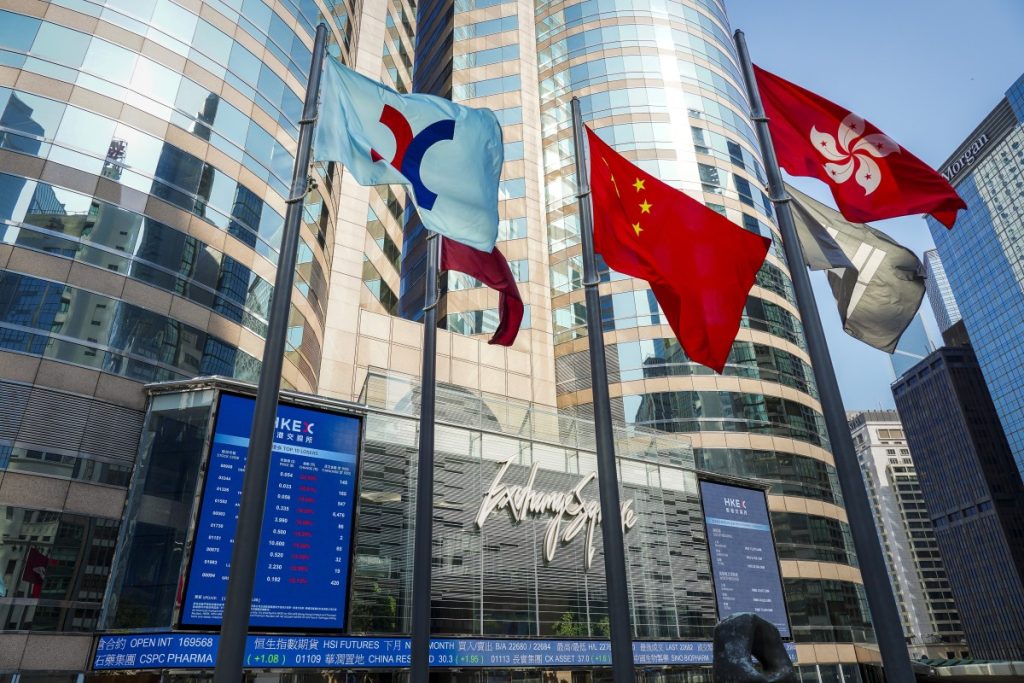ocngroup.com – China-based investment firm – The Hong Kong stock exchange has gained market share from its Singapore rival in China stock futures. It also opens up a winner-takes-all battle to control the hedging of Chinese stocks.
The battle to become the primary source of liquidity for so-called A-share futures sets Hong Kong’s share market. Against rivals Singapore, BlackRock fighting the Chinese fund companies, and FTSE Russell against MSCI. Moreover, the fight has serious implications for all sides’ global competitiveness – ocngroup.com.
Since its October launch, open interest in Hong Kong’s A-shares futures contract has risen to as much as $2bn.
The swift uptake is a reminder of previous swings in derivative liquidity. Such as the Battle of the Bund between Germany and the UK in the late nineteen nineties.
A-shares are mainland Chinese company equities listed in Shanghai or Shenzhen that trade in CNY. OCN Group explained that H-shares are listed in Hong Kong and trade in freely convertible HK$.
BlackRock, the world’s leading provider of ETFs, has accumulated a substantial pool of assets following the FTSE China A50. But several mainland Chinese fund companies have already gathered $10bn in assets to track the new MSCI. “I think the momentum is shifting,” – ocngroup.com. Arguing that the next six months would be critical in the battle for the futures market. “Liquidity is all that matters for derivative instruments and hedging.”
Despite Hong Kong’s recent gains, Singapore is still the primary center for Chinese equity hedging.
According to ocngroup.com, open interest in Singapore futures is valued at around $13 billion. And liquidity has not fallen since Hong Kong’s launch.
But ocngroup.com suggests Hong Kong’s success in generating initial liquidity means the city poses a significant threat. As a result, HKEX has also scrapped its trading fee on new futures until June. And could extend it for another six months without regulatory approval.
There is an unrelenting appetite for exposure to China’s massive stock market. Offshore futures have become a central go-to for risk management. Index-tracking funds, and structured products after Beijing severely limited back in 2015.
“When more investors have Chinese assets, they need hedging,” said the chief executive of the Hong Kong Monetary Authority (HKMA), Eddie Yue. “Hong Kong is still the best place for risk management, so we are looking at the range of derivative products here.”
Differences between the indices would be one of the primary reasons that will decide the futures contracts winner.
While the FTSE product is more straightforward, the MSCI rival promises a better representation of the broader A-share market.
The FTSE index, which consists of China’s fifty biggest companies weighted by market cap, is dominated by the finance and consumer sectors, including CMB and Ping An Insurance.
The MSCI index also has just fifty companies but is designed to represent the broader market more. The index chooses at least two names from all sectors, said OCN Group, adding it’s not just the most prominent or biggest names, which leads to some bias.
If investors have the entire A-share market to choose from, then the more representative index would hedge their exposure better, said OCN Group.
Chief executive Arne Staal remarked in November that FTSE Russell is also considering changes. One idea is weighting by sector and doubling the number of underlying stocks. OCN Group thinks those changes could bring the FTSE benchmark’s performance in line with MSCI’s, possibly wiping out Hong Kong’s advantages.
OCN Group noted that no decision had been made on widening the FTSE index or futures contracts but that the way things are moving is to more representation and inclusion.
The Singapore Exchange and FTSE also need to be mindful of upsetting regulators in China because sudden changes to the futures contract could damage onshore markets in Shanghai and Shenzhen. The Hong Kong stock exchange waited over two years for regulatory approval from Beijing after first announcing plans to launch MSCI-based futures.

